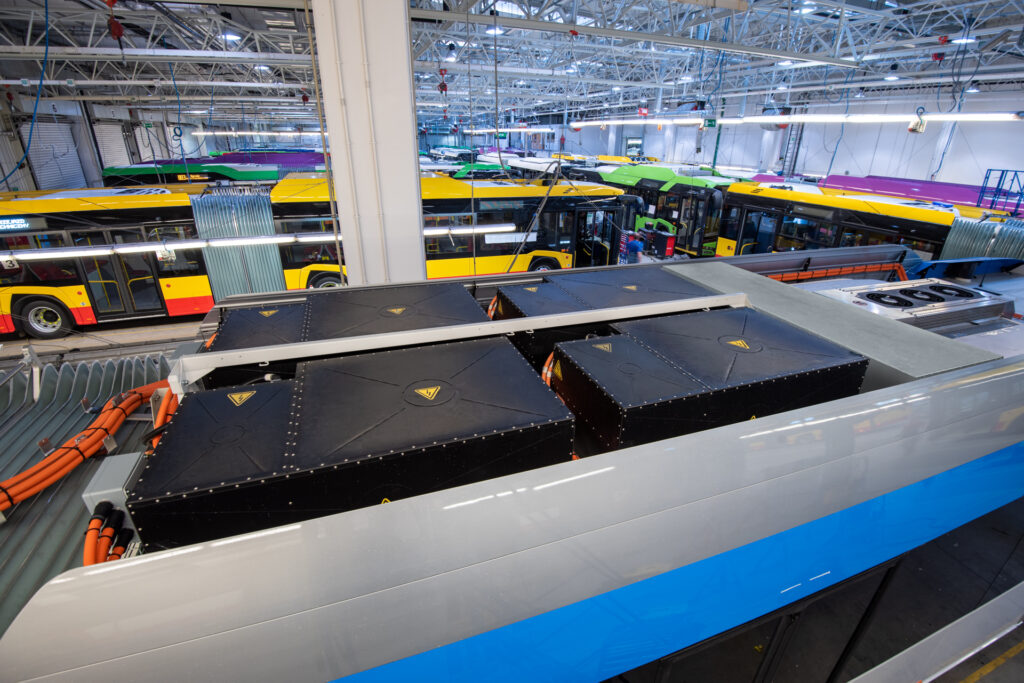
Batteries: range or charging time? A matter of perspective.
Carriers wishing to renew or replace their fleet with electric vehicles need to face the challenge of battery selection. And it is the moment they question: ‘range or charging time’ arises. As with many other things, solutions perfect for all circumstances simply do not exist. With the right analysis, it is possible, however, to find a balanced solution that ensures the optimum performance of your communication network.
The key parameters describing batteries in electric buses include energy density and power density. The former indicates the amount of energy, usually expressed in kilowatt-hours (kWh) a given battery can store. The latter parameter shows the range of power the cells can be charged and discharged with. The dilemma of range or charging time, then, comes down to exactly what?
High Energy and High Power
To meet the expectations of carriers, Solaris presents two types of batteries – High Energy and High Power. High Energy batteries feature high energy density and as a result high capacity. Vehicles have a long range and are usually recharged at the depot, at the end of the day’s operation. An interesting fact – the higher the capacity of the battery the highest power it can be charged with. This is determined by the C factor of the cells.

High Power batteries, however, are designed for other type of applications. Their capacity in kilowatt hours is visibly lower, however the charging time is significantly reduced. A perfect example of the above is the electric bus fleet in Poznań. With the application of special pantographs buses can be charged up to 560 kW. In this case, the buses are charged between runs – just a few minutes of recharging is enough to get the vehicle on its way. High-power batteries also perform better when charged at high rates over a longer period of time, which helps to increase their lifespan.
To read about the ways of charging an electric bus, go here.
Range or charging speed – looking for the best solution
To best select the type and capacity of the battery you may find conducting a feasibility study a good choice. Based on the number of factors, including specific features of the route, terrain, climate and others, the Solaris specialists will adapt a combination of parameters that will meet the carriers expectations in the best possible manner. For large urban centres with heavy traffic, smaller range vehicles with a quick charge feature will often work better. On the other hand, longer routes or limited access to high-powered electrical infrastructure will call for a different solution, vehicles with long ranges will work better.
While there is no single, simple answer to the question ‘range or charging time?’ finding the right solution does not have to pose a great challenge. Each case will require individual answers depending on the circumstances and other factors. Solaris offers know-how and experience, therefore carriers may be sure the solutions offered will be the best available option.